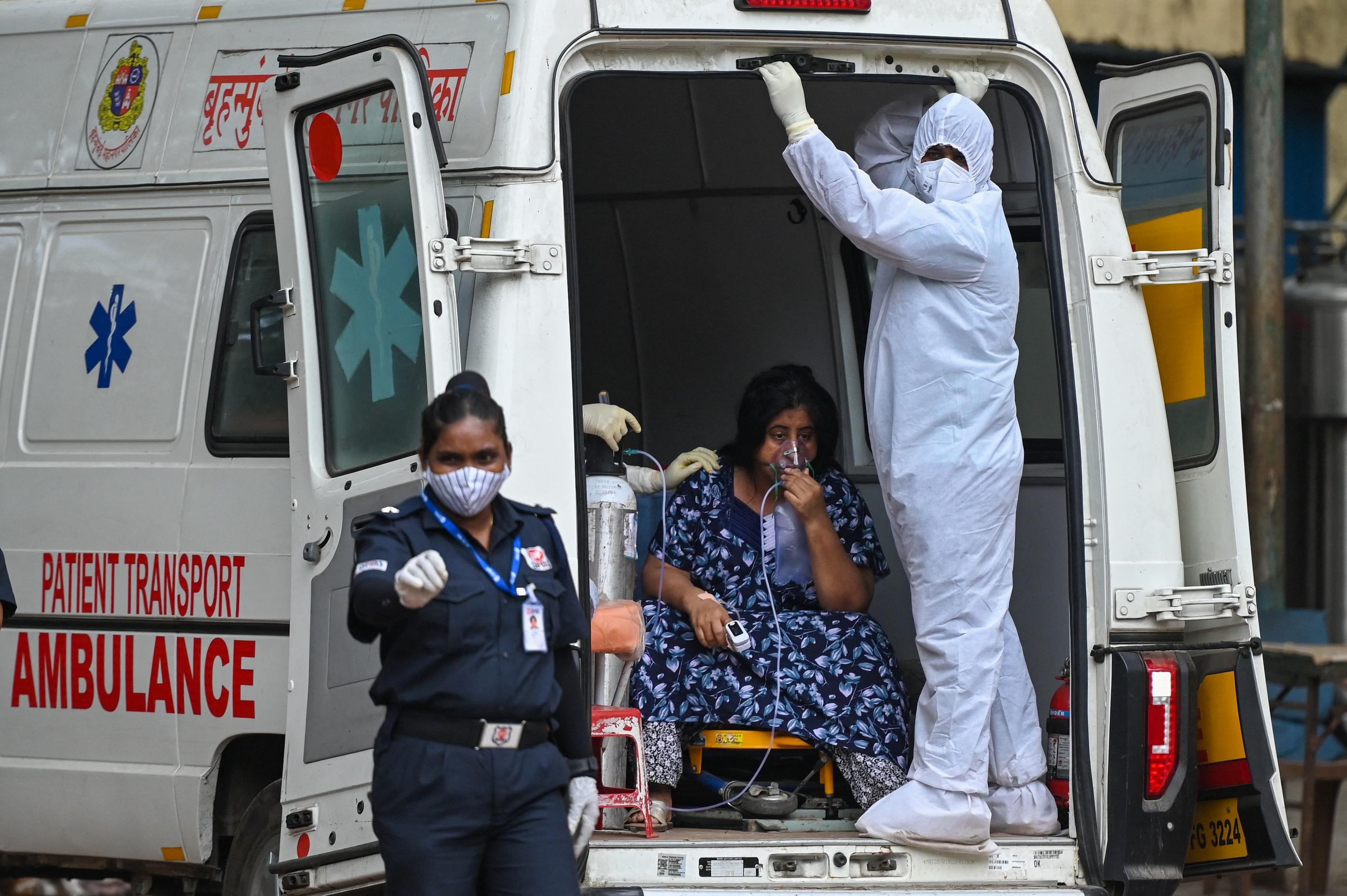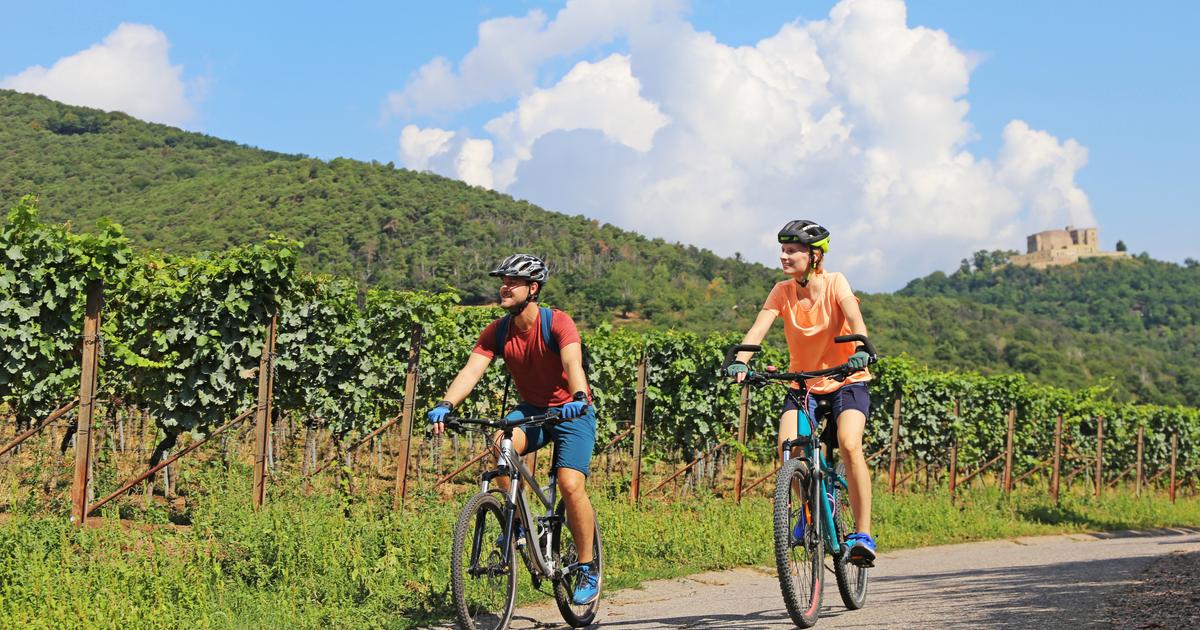It is one of the dozen or so "variants to follow", requiring "enhanced" surveillance.
The B.1.617 variant of SARS-CoV-2, said to be “Indian” because it has in all likelihood emerged in the second most populous country in the world, is gradually spreading on the planet.
Several countries, including France, have identified a few cases.
But no direct contamination on French soil has been identified to date.
Until the last few days, it was simply categorized as “under evaluation”.
The highest level is that of “worrying”, grouping together the so-called “British”, “South African” and “Brazilian” strains.
We take stock of what we know about its presence in France.
Infected people passed through France
Two first cases of this “Indian” variant were identified at the beginning of April, in Guadeloupe.
These people, on a business trip from India to the Dominican Republic, were in transit through this overseas territory.
Asymptomatic, they had been placed in a fortnight before they could leave the Island and continue their journey, once a new negative test had been carried out.
It is therefore not about people contaminated by this variant in France, but simply tested positive for this strain on French soil.
This Thursday, the Belgian press also revealed that a group of twenty students from India and having passed through Roissy had tested positive for the “Indian” variant on their arrival in Belgium.
The whole group had taken a rapid antigen test at the Paris airport and it was negative, reports RTBF.
These young people could have been infected during their bus trip between Paris and Belgium by a "super-contaminator".
He would then not have tested positive a few hours earlier, perhaps because the virus was not detected during the sample.
No "indigenous" case identified in France ... for the moment
Besides the two travelers to Guadeloupe, what about the “Indian” variant on French soil?
"It's obvious [that] will happen, it's a matter of days, he is probably already in France", estimated the head of the infectious diseases department of the Saint-Antoine Hospital in Paris, Karine Lacombe, Wednesday on France Info.
In its weekly epidemiological update on Thursday evening, Public Health France says it has not identified "to date" any "indigenous" case, that is to say no directly contaminated person on French soil.
VIDEO.
B.1.617, the "double mutant" variant which is causing the epidemic to explode in India
This does not guarantee 100% that there has not been, or that no one has arrived infected in France, simply that no case has been identified. Because this "Indian" variant is not detectable during the "screening" of the positive tests, that is to say the tracking of such and such a mutation. Only sequencing, a complementary method which consists in establishing the complete genome of a sample, allows this. But it is only performed on a small sample of cases (5,000 last week).
"We are monitoring the screening indicators to detect the evolution of the part of indeterminate variants and possibly then strengthen the sequencing", replied this Friday morning during a brief Bruno Coignard, head of the infectious diseases department of Public Health France . “Of course, we can only attest to its presence on the basis of detection. […] We can imagine that a case escapes us, but we also have cases of Covid infection that escape us, ”he added, ensuring that we are“ vigilant ”on this point.
It is also possible that a person is still in the incubation phase and not detectable during screening - mandatory - on arrival at a French airport.
The risk that it is found "in nature" should however disappear, since a quarantine of ten days will be compulsory for any passenger arriving from India from this Saturday.
"Quarantine is necessary because there are plenty of reasons why a test can be a false negative: it is too sensitive, it is done too early therefore below the detection thresholds, etc.", indicates the biologist Claude-Alexandre. Gustave.
A variant already present in some of our neighbors
As of April 8, Public Health France indicated that this variant had "been detected sporadically in England, Germany, Canada and Singapore". The outbreak.info site, which is based on the sequencing data contained in the Gisead database, now reports a presence - most often reduced - of this variant in 18 countries, including 6 of our European neighbors (Germany, Italy , Spain, Switzerland, Belgium, United Kingdom). “It's a bit like the British variant at the start. Overall, we can say that it circulates everywhere, especially since it has reached a sufficiently high level of circulation when it is detected by sequencing in a country ”, indicates Claude-Alexandre Gustave.
If this variant appears in metropolitan France, this would not necessarily mean that it will take an increasingly large part among the strains identified or that it will have an impact on the epidemic.
This has exploded in India but "no link has been established between the emergence of this variant and the recent deterioration of the epidemiological situation", indicates Public Health France in its latest risk analysis, also referring to "a low adoption of preventive measures by the general population ”.
Read also The South African and Brazilian variants, still not very present in France but in clear increase in places
It is however potentially "dangerous", as are the "South African" and "Brazilian" variants. One of the mutations it contains, E484Q, “could be associated with a significant impact in terms of immune escape (post-infection and post-vaccination), although this has not yet been formally demonstrated at this stage. to be associated ”, underline the experts. Another, the L452R, "would be associated with a stronger transmissibility and an immune escape", advances Bruno Coignard cautiously.









